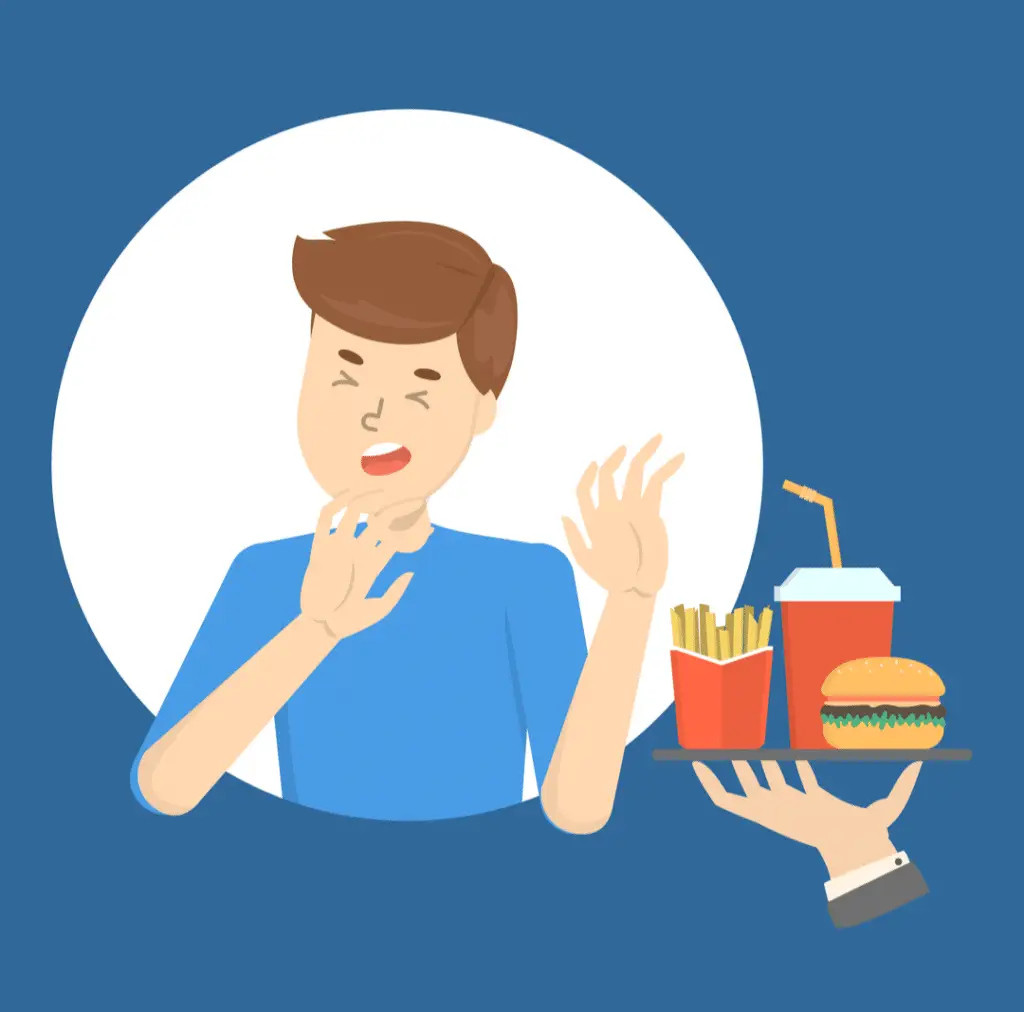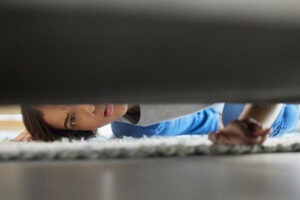Eating disorders date back to Hellenistic (323 BC-31 BC) and medieval times (5th -15th century AD). Of course back then, much was surrounded and based on ideologies and religion. Fasting for “salvation”, if you will. Purification was the ongoing trend of those times.
From Catherine of Sienna (1380) to Jane Balan, the “French fasting girl of Confolens” (1613) to the famous death of Karen Carpenter in 1983, all the way to current superstars Demi Lovato, Lady Gaga, Russel Brand, and Elton John, eating disorders have found a way throughout history to disrupt the lives of even the most fortunate.
Over the course of history, the beliefs and experiences of individuals and societal views as a whole change. With the birth of media and marketing, the concept of thinness was also born, amplified and glorified for as long as most of us can remember, considered something worth sacrificing for.
Regardless of reasoning, it can be agreed that these eating disorders are most often tied into other underlying conditions such as:
- Depression
- Anxiety disorders
- Borderline personality disorders
- Obsessive compulsive disorder (OCD)
- Substance Abuse
It is important to understand what you are dealing with in these instances. Eating disorders can be fatal when severe and left unchecked.
What is an eating disorder?
Eating disorders are a range of psychological conditions that cause unhealthy eating habits. They start with an obsession with food, body weight/shape, or a distorted body image.
There are three main types of eating disorders:
- Anorexia nervosa is a serious psychological eating disorder characterized by a loss or lack of appetite, an intense fear of gaining weight, and a distorted body image.
- Environmental factors:
- The effects of media and other reinforcements that thin people are ideal stereotypes.
- Professions and careers that promote being thin, such as modeling and acting.
- Family and childhood traumas including childhood sexual abuse or severe trauma.
- Peer pressure among friends and/or co-workers to maintain a certain appearance.
- Examples of biological factors include:
- Irregular hormone functions
- Genetics
- Environmental factors:
- Bulimia nervosa is an emotional disorder involving a distorted body image and an obsessive desire to lose weight, in which bouts of extreme overeating are followed by depression, guilt, and self-induced vomiting, purging, or fasting.
- Factors playing a role in the development of bulimia include:
- genetics
- biology
- emotional health
- societal expectations
- Factors playing a role in the development of bulimia include:
- Binge eating disorder (BED) is a severe, life-threatening, yet treatable eating disorder characterized by recurrent episodes of eating large quantities of food, often very quickly and to the point of discomfort. It is the most common eating disorder in the United States.
- Characteristics include:
- A feeling of loss of control during the binge eating.
- Experiencing shame, distress or guilt after the episode.
- Not regularly purging to counter the binge eating.
- Triggered by emotional distress, people battling BED often yo-yo diet and fluctuate in weight.
- Characteristics include:
What is body image and why is it important?

Body image is how you see yourself when you look in the mirror or when you picture yourself in your mind. It embodies:
- What you believe about your appearance
- How you feel about your body, including height, shape, and weight.
- How you physically experience yourself or feel in your body.
How we see ourselves and messages we take in from the outside world at a young age can lead to either positive or negative body image. Having a healthy body image throughout life is an important part of overall mental well being and eating disorder prevention. We need this to nurture self-esteem, self-acceptance, and healthy outlooks and behaviors.
What are the 4 aspects of body image?
- Perceptual body image is how you see yourself. Not to be confused with how you actually look. People are their own worst critic.
- Affective body image is how you feel about your body, whether you are satisfied or not.
- Cognitive body image is the way you think about your body, your level of preoccupation with your size and/or shape.
- Behavioural body image is the behaviors you engage in as a result of your body image. This can be in the form of excessive eating and purging, exercise, or other unhealthy behaviors.
It helps to stay mindful of all aspects of body image. We will whether we want to or not, so we’d do best to maintain and nurture.
What are some body image disorders?
Body Dysmorphic Disorder is when an individual is struggling with an over-emphasis on a specific body part as opposed to someone who is unhappy with his or her overall body size or shape. BDD is an obsessive pathological disorder.
Distorted body image, also called negative body image, refers to an unrealistic view of how someone sees his or her body.
The link between social media and body image?
Social media has been linked to higher levels of loneliness, envy, anxiety, depression, and eating disorders.
Studies show that peer competition plays a key role in body image and eating disorders. Platforms like Facebook and TikTok stage the perfect arena for this to take place unsupervised, which has shown to be highly affective to teenage girls.
Are body image issues just for women?

The answer is a definitive no! 20-40% of men are unsatisfied with their appearance, the same as woman. This is a human condition that affects all types of people for all types of reasons.
The psychology of men with eating disorders.
33% of people struggling with an eating disorder are male. Men also tend to report and seek help for eating disorders less than woman as a result of the stigma that comes along with it. For many it is perceived as a feminine affliction, however untrue it may be. It should be known that men respond just as well to treatment as woman and there is help available.
What are the root causes of an eating disorder?
The actual cause of eating disorders is still unknown, but it is agreed that certain factors play into the risk of developing one of these illnesses. These contributing factors are:
- Genetics. Eating disorders tend to run in families.
- Biochemistry. Research suggests that individuals with anorexia have too much serotonin, keeping them in a constant state of stress.
- Other psychological contributors.
- Low self-esteem
- Feelings of hopelessness and inadequacy
- Trouble coping and/or expressing emotions
- Perfectionism
- Impulsivity
- Culture.
- An over-emphasis on appearance, at the expense of more meaningful attributes
- Societal beauty standards that promote an unrealistically thin body shape
- Media’s focus on dieting and associating thinness with positive qualities like attractiveness, health, success and love
- Messages that perpetuate a fear of fat as being undesirable and unhealthy
- Environment
- Being teased about appearance in childhood.
- Growing up in a household where emphasis is placed on appearance of a particular ideal body size or shape.
- Parents and other family members experiencing body dissatisfaction and engaging in dieting or weight control behaviors.
- History of physical or sexual abuse
- Peer pressure
How do I know if I have an eating disorder? Look for these signs.
There are many signs you can look for in reference to an eating disorder, although it’s best to be seen by a licensed professional for a full diagnosis.
If you are not ready to speak with some one, there are a few questions you might ask about yourself or your loved one. These are all potential indicators of a much deeper problem, so if you answer “yes” to more than few of these questions, you should seriously consider reaching out for help.
- Do your eating habits differ from those of your family and friends?
- Do you go through the day worrying about what you will or will not eat?
- Do you prefer to eat alone?
- Do you make excuses (e.g. “I already ate”, “I am not feeling well”, etc.) to avoid eating with friends and family?
- Do you experience uncontrollable eating binges during which you consume large amounts of food and afterwards make yourself vomit?
- Do you cut up food into tiny pieces, hiding it so people will think you ate it?
- Do you chew food and spit it out without swallowing it?
- Do you hide stashes of food?
- Do you become angry when other people take an interest in what you eat?
- Do you feel alone in your fears about food and eating?
- Do you fast or eat very little as means of weight control?
- Do you use laxatives or diuretics as a means of weight control?
- Do you believe that you are fat even if your friends say otherwise?
- Do you panic when you gain weight or have an overwhelming fear of gaining weight?
- Do you become anxious if you miss a workout?
- Is it important to be thinner than all of your friends?
- Do you feel you are obsessed with dieting, exercising, fitness, or calorie counting?
- Are you irritable, depressed, and/or spend a lot of time alone?
- (For woman) Has your menstrual period stopped or become irregular for unknown reasons?
Treatment for body image and eating disorders.
Body image disorders such as Body Dysmorphic Disorder are most often treated through cognitive behavioral therapy and at times, with medication. Selective serotonin reuptake inhibitors (SSRIs) have been found to be more effective than other anti-depressants in treatments of BDD, assisting in in the decrease of negative thoughts and unhealthy repetitive behaviors.
Eating disorders require a combination of psychological and nutritional counseling and monitoring. It is important that medical, psychological, biological, interpersonal consequences as well as cultural forces that contribute are all addressed. A therapist will create a safe space and work with you in individual and/or group cognitive behavioral therapy and a variety of family based therapies. The combination of your primary care doctor, a trusted therapist, and a nutritional counselor will set you or your loved one up for success with the proper support system in place.
5 recipes for a better body image!
Now on to the best part….Focusing on you!
If you feel unsatisfied with yourself, here are 10 surefire ways to bring yourself back in the game! They don’t take much time and they will reap benefits for as long as you allow them, so take advantage!
- Talk good to and about yourself. Refocus your unhappy thoughts on what you love about yourself. “True beauty” is not skin deep. Find ways to remind yourself of this. Daily affirmations that you feel work for you are a great start to better body image.
- Surround yourself with positive people. People with healthy outlooks will promote your well being and add sustenance to your life. It allows you to not just be exposed but to share in those positive emotions.
- Record the positives aspects of yourself. Make a top 10 list of all the things you like best about yourself. It will serve as a confidence booster and reminder of why you should be proud to be you!
- Commit to doing things that make you feel good. Self care is an important piece to our lifelong journey. Taking the time to be present with yourself and what makes you happy will balance out the negative emotions you may be feeling. Treat yourself frequently. You deserve it!
- Take you mind to another place by focusing on helping others. This will always leave you feeling proud and good about yourself. You will make new friends and build new support networks.
- Identify your emotions. Your appearance is not what makes you, you. And when we say things like, “I feel fat.”, we most often mean “I feel sad.” Take a moment to question if the underlying emotions. Becoming aware of our feelings and being present within ourselves will help build coping skills and mindfulness.
- Shut down opportunities for comparison. A great way to do this is to unplug from social media! Social media has been proven to have effects on people, especially woman, that can lead to multiple mental health and body image issues. Moderation is the key and to help with that, you can become a critical viewer. Question the ads and posts that make you feel bad about yourself and take action by cutting them from your feeds.
- Look at yourself as a whole person. When you are looking in the mirror, you must make the choice to not focus on specific parts. Look as you would want others to see you…. as a whole person. Don’t be afraid to do this. You must not fear the mirror!

If you or a loved one is struggling with distorted body image, an eating disorder, or simply need to talk, Makin Wellness is here to help! Our top-rated professionals will create an environment of comfort and non-judgement while maintaining your privacy and individual needs. Please visit us at www.makinwellness.com or call 1-833-274-4325.
If this article was helpful, please share it with your friends. And follow us for updates, new Wellness Today articles and Makin Wellness podcasts!









This Post Has One Comment
Eating disorders are a major issue that everyone should be aware of and careful about. It may have an impact on the individual experiencing it. It is critical to comprehend what is going on. Knowing how to prevent it and assist those who are affected is critical.
I appreciate you sharing such an interesting piece with everyone.